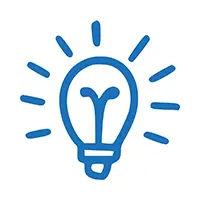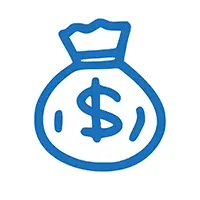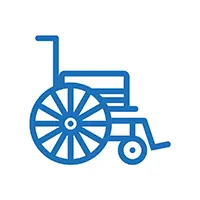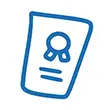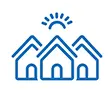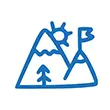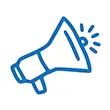Video details
Video title: Trikes give the joy of mobility
Video duration: 4:48
Page(s) this video appears on:
Video transcript
[Music playing]
My name's Aaron Ure, and I'm the coordinator for the Avantidrome Community Trikes programme, here at the Avantidrome in Cambridge.
[Music volume rises]
[Music volume fades to background level]
The emphasis of the programme is to give people the opportunity to get up and get riding again. Some of our riders haven't ridden for 50 years, and some of them haven't ridden at all.
[Music volume rises]
[Music volume fades to background level]
And it's to give people that opportunity to.. uh, take charge of one area of their life and say, I wanna do this [loud voices in background], and to give them every opportunity to succeed in doing it.
The thing that I see, and that's important for me as a trike rider, and the thing that I hear back most often… from our riders is that… umm… for them the important thing is, they have control… they choose to come here and they choose to ride and they… they actually take control of that area of their lives and that always comes back from them… I did X amount of kilometres today, and the statements always begin with 'I', it's not what somebody else thinks. I did this today, or I achieved that today. I went under the bar today. And I think that's why it's so important because it actually empowers people and gives them back that sense of choice and accomplishment in their lives.
Coming here, with, ah, the velodrome… with ah the Big Chief, with Aaron, has been very supportive for us, both my wife and I. [Why has this been so good for you?] Fitness… Ah, keeps you motivated.
My passion is coming here. We come here once a fortnight… my husband and I, we have fun. There are times we go down in health and ah, we still pick ourselves up.
A lot of people that wouldn't be able to exercise can come and do this and as you can see, no legs no arms makes no difference you can come and cycle. Ah, there's bikes built for everybody. If you can't sit up you can lay down.
It's made a difference I think, like um, just in my walking and just feeling better about yourself, um, yeah and I just think I've got fitter during the year and a half, two years, which I think makes a difference somehow. I can't quantify it exactly but it just makes a difference, you feel better and learning a new skill is good for the brain.
I've done… 21 k's…um, just, at the weekend. Yeah… I just enjoy it… [it's just good fun] yeah.
[Music volume rises]
[Music volume fades to background level]
It started with just a small group of us, four or five of us that all came in, were either post stroke, myself with spinal damage another lady with balance and another stroke client. And we just wanted to ride. We just… we just wanted to get off walking frames and sticks and just being able to ride was such a relief for us. And from there it just kind of snowballed. Within a year we'd gone to, um… holding the programme two mornings a week, and then three mornings a week, and then two groups a day, until last year we serviced five thousand rides just on trikes last year.
Some days, life is more difficult than others. Some days you just don't wanna get out of bed, and you actually don't wanna be around people. But my choice is that I always feel better after, and so I make the choice to, yes I am going to do this today, yes I am going to be here. Um, and of course, you know, for myself and the other coaches, what we get back… um and our volunteers, who are so important… what we get back is so much more than what we give out. I, we may put somebody on a trike and get them riding… but the look on that person's face and the sense of gratitude from them, um, is way beyond whatever input we put in.
[Music volume rises]
[Music plays outro]
Last updated on Friday, 27 September 2019

